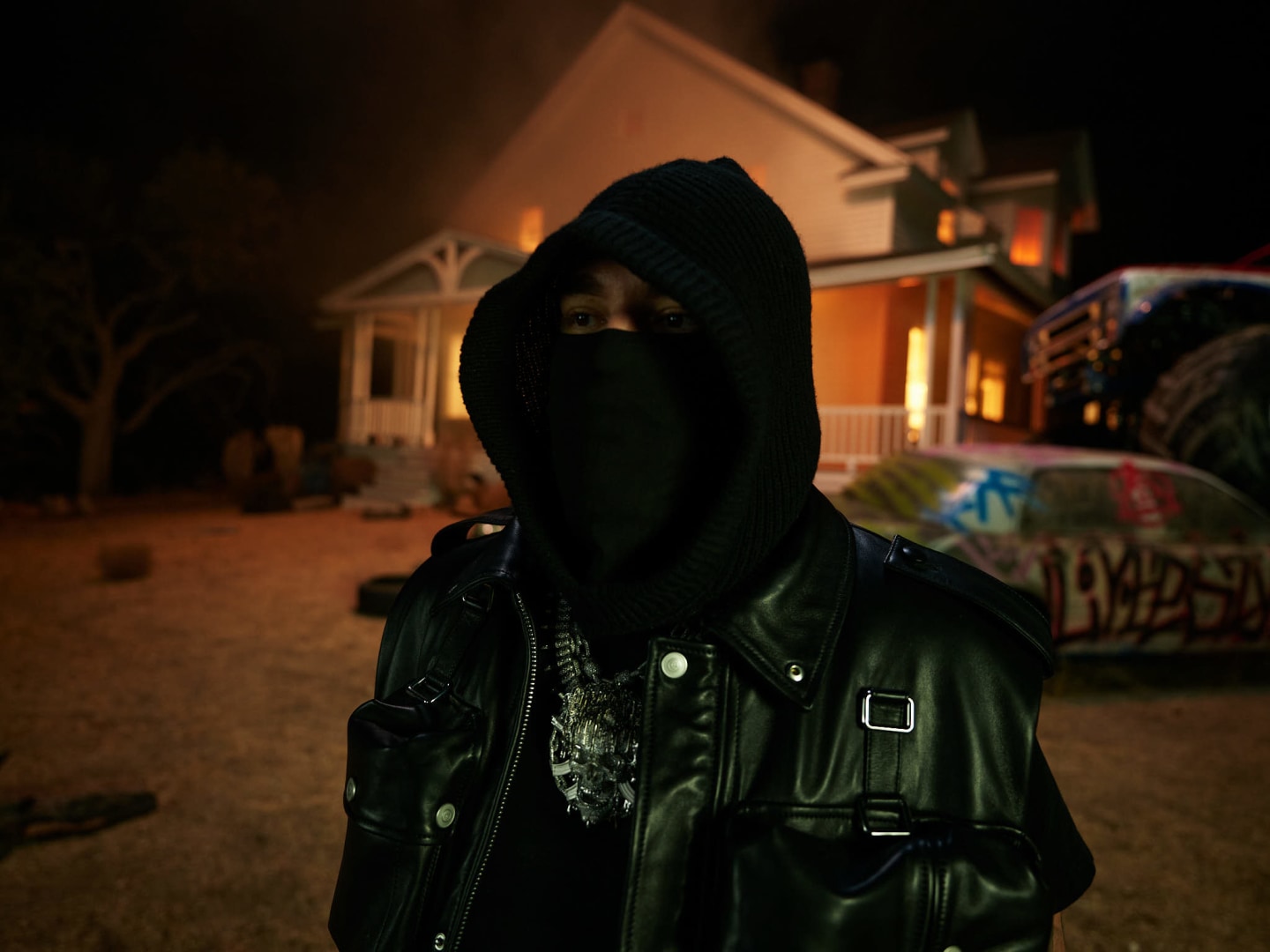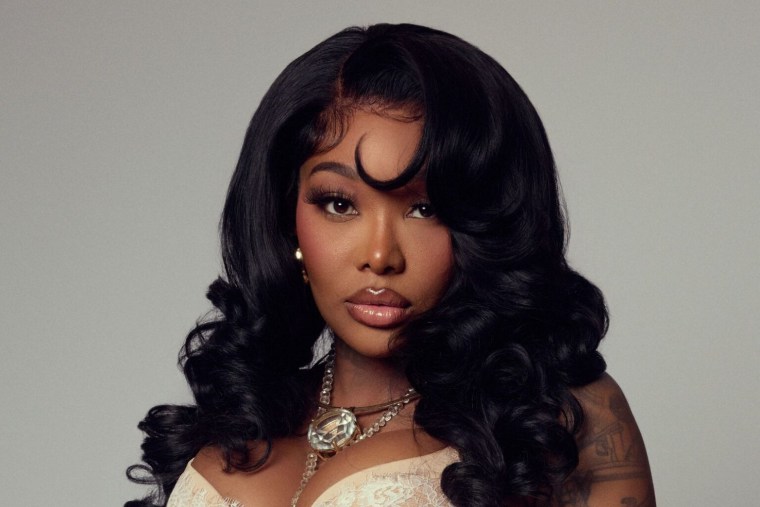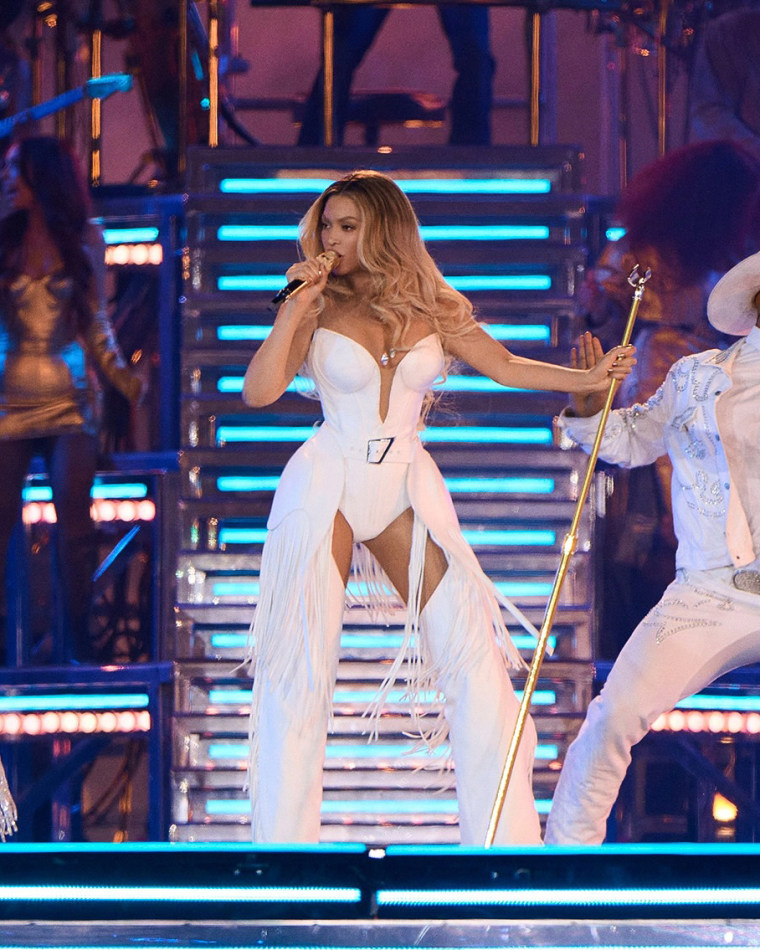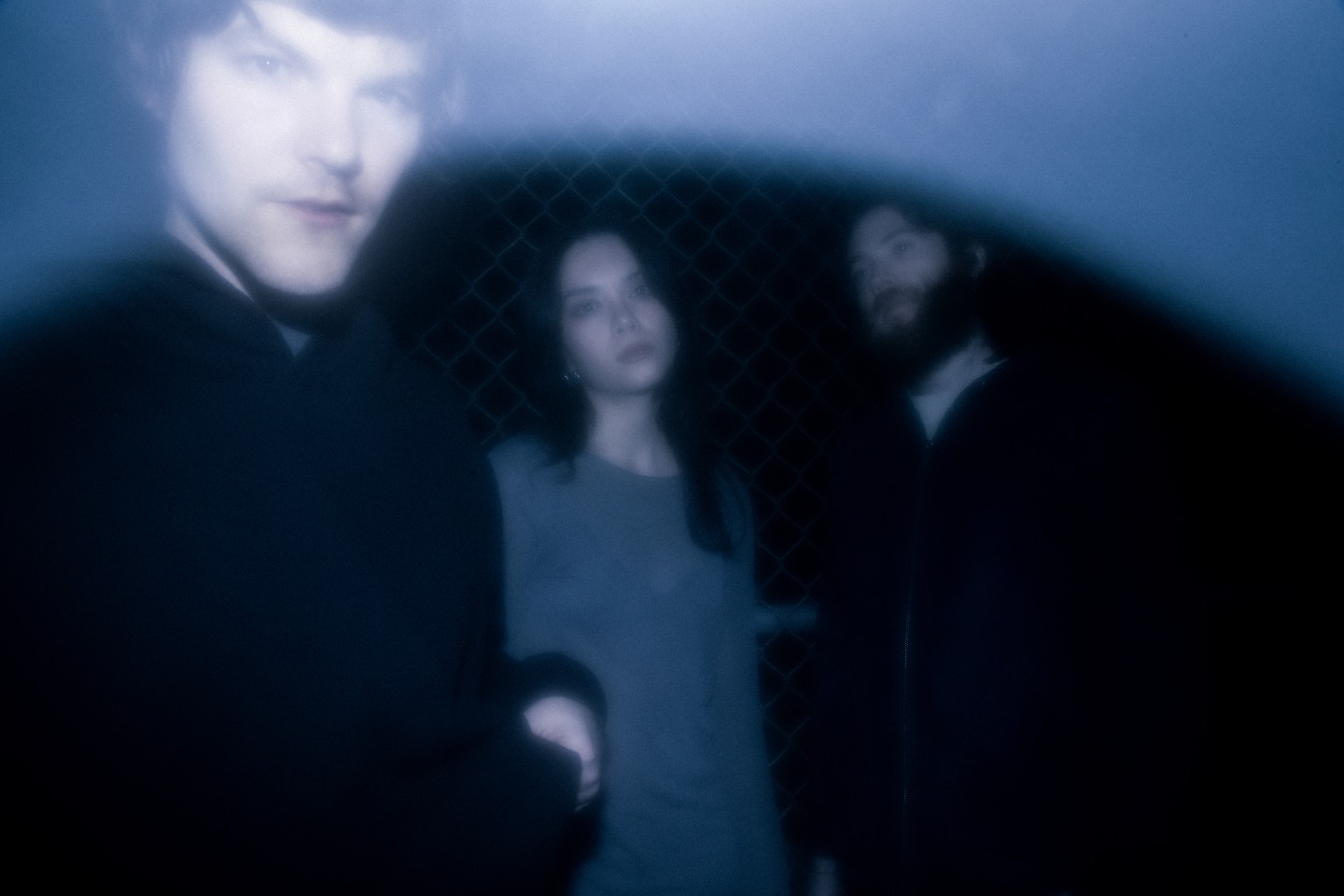Alex Edep
Yeat has 4,800 beats for LYFESTYLE in his iMessage right now. Technically 7,000, but a couple thousand of those didn’t seem quite right. Those that passed first inspection by his executive producer Synthetic graduated from FL Studio to DropBox, batched out in packs of 100, 200, 400, and then were submitted. The ones that weren’t all the way there yet got sent back with specs for Synthetic’s 20-strong producer collective Hologram to overhaul. Or, Yeat simply requested the stems so he could rework things to his liking. How many of these beats evolved into full-fledged songs is anyone’s guess. Manager Zack Bia says he’ll occasionally wake up at “7 in the morning my time, 4 in the morning on the West Coast” to FaceTime calls from the Portland rapper, who’s just had an idea in a dream and recorded it on his bedside MacBook. Songs are recorded quickly and instinctually, then set aside. “I never touch anything after it’s done,” Yeat says.
His approach to tracklisting was similarly intuitive, though he admits, “This time it [took] longer than it normally ever has.” “That’s because you’ve been leaning into it,” Bia chimes in. “This one’s more a little bit more curated,” Yeat agrees. “I wanted everything to feel seamless, but not actually [be] seamless.”
The pair are calling me from the back of a dimly lit vehicle in Amsterdam, T-minus one hour to showtime, traveling “straight from the plane to the venue.” Yeat isn’t wearing a mask, just a black Supreme hat, though I only occasionally catch a glimpse of his face as he largely stays off camera. His new album LYFESTYLE drops in four days, and he’s agreed to speak with The FADER for a rare glimpse into his creative process.
This is unusual in itself. The 24-year-old rapper born Noah Olivier Smith is notoriously press averse, historically liable to answer questions with inscrutable koans or suggest cover-story interviews be conducted via text message. Much like his staple balaclava, you could uncharitably interpret these antics as a low-effort maneuver to build mystique, though I suspect these defense mechanisms are more rooted in personal unease than professional clout-jockeying.
Whatever the reasoning for his prior reticence, Yeat is obligingly candid when we speak, thoughtfully turning over even my nosier questions about his career. Who cares about his childhood? We skip over the early days of Slayworld, and how he ended up signing with Bia. If Yeat has advice on relationships, saying no to drugs, or alien encounters, I don’t ask. Where his most recent album, 2093, was the product of newfound sobriety and IRL recording sessions (“We had a vineyard in Oregon and we invited all the producers there so they could come see things through your eyes,” Bia says), LYFESTYLE is the handiwork of a locked-in ascetic.
“LYFESTYLE [is] basically just my normal rap shit,” Yeat says. “It’s not futuristic, it’s not like a whole different world.” “But it’s the most polished,” Bia interjects. “Yeah it’s the most polished I’ve ever came with the rap shit,” Yeat agrees.
“Noah’s music-making process is so insulated because he makes music only by himself,” Bia adds. “There’s no outside noise when he’s actually making music. Even when I’m with him, he’ll be like, ‘Okay, I’m gonna go make music now, you guys can leave.’” Even for bigger collaborations with Childish Gambino, Yeat would rather cut demos in the studio and finish them at home.
It’s here in isolation where he does his best work, smudging the lines between braggadocio and melancholy with abandon. Yeat tells me he rarely raps about his day-to-day emotions, preferring to burrow into the mood of an instrumental and freestyle his way out. “I don’t write anything, everything just comes off the top,” he says. “It could feel very personal, but then four bars later I’m shit talking. It’s like your life, everything’s back and forth.”
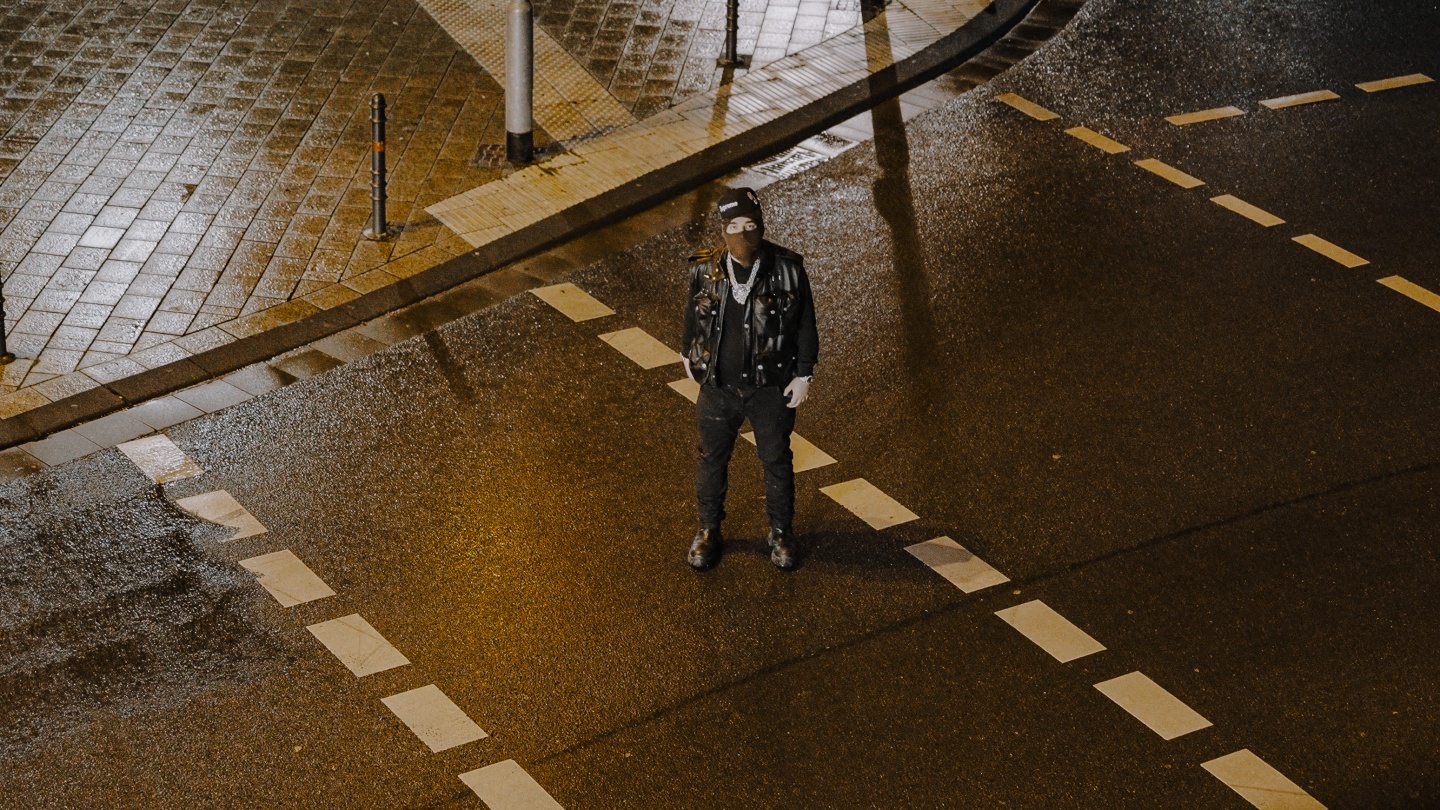
Alex Edep
If you want to listen to a Yeat album before release you’ll have to jump through some hoops. Much like his rap inspirations — Future, Young Thug, Lil Uzi Vert — leaks of his music are highly sought after, and his label is excusably (if overzealously) paranoid. Forget streaming apps like Untitled and SoundCloud; the best they can offer is a supervised listening session over Zoom at the start of October. On the other end of the line is Patrick Basler, the general manager of Bia’s boutique label Field Trip Records, who takes me through roughly half of the album.
LYFESTYLE is a return to high-octane form for Yeat, closer in sound and structure to his 2021 breakout Up 2 Më than his more recent albums. He’s trading bars with old friend Summrs over the careening “Go2Work;” pitter-pattering through the blitzkrieg of “Speedball;” bragging, “Diamonds on me cunt, watches on me cunt” on the hook to “U Don’t Know Lyfe.” There’s also some of the genre omnivory that marked his last album, from the throbbing dubstep-meets-Soft Cell “Gone 4 A Min” to the skaiwater-esque pop-punk flair of “Forever Again.” But from opener “Geek Time” to late album highlights “FLYTROOP” and “God Talkin Shhh,” Yeat is clearly back in his rap bag, expanding and expounding upon his particular strain of rage music.
Although he began working on this album following February 2023’s Aftërlyfe, most of the music is new, recorded in the wake of 2093. Yeat has never been a critical darling, lambasted for albums considered overlong, underbaked, or simply too homogenous, though that hasn’t slowed his ascendant star. Afterlyfe peaked at no. 6 on the Billboard 200, and 2093 debuted at no. 2. But despite the mounting commercial success, the chatter around 2093 seemed ambivalent even among his core supporters.
“I never touch anything after it’s done.”
“When it comes to creating something new with an artist and you’re really trying to push to that next level, it’s complicated, because you don’t want to push too hard,” says Synthetic, who’s worked with Yeat since 2021’s 4L, on a video call. The producer remotely contributed five songs to Yeat’s last album (seven on the extended deluxe), and so is intimately acquainted with 2093’s lackluster reception.
”2093 was very experimental, right? [And] the feedback on that was very mixed,” Synthetic explains. “When we were trying to craft this album, we wanted to make sure that we were delivering what the fans wanted but also creating something that the fans hadn’t heard yet but felt familiar.”
You probably don’t know Synthetic’s name, but your favorite producer does, and you’ve definitely heard his work this year: “Black & Tan,” “SLUT ME OUT 2,” “Think U the Shit (Fart),” and more all feature a Synthetic co-production credit, thanks to his main hustle selling loops and kits. But LYFESTYLE represents a significant jump in billing for the producer, who’s been promoted from handling a handful of songs on any given Yeat project to helming a full record.
“I remember talking at the release party for 2093 and [Yeat] telling me, ‘For this next project LYFESTYLE, I want you to produce all of it,’” Synthetic says. “At the time I was a little skeptical […] but then shit, we’re here now.”
It’s a striking act of consolidation: Previous Yeat albums tapped a murderer’s row of high-profile beatmakers, but Synthetic and co. are behind the boards for roughly 80% of the new record. “I felt like I had a lot of responsibility to deliver because he told me, ‘If you truly want to do this, then we really got to go crazy.’”
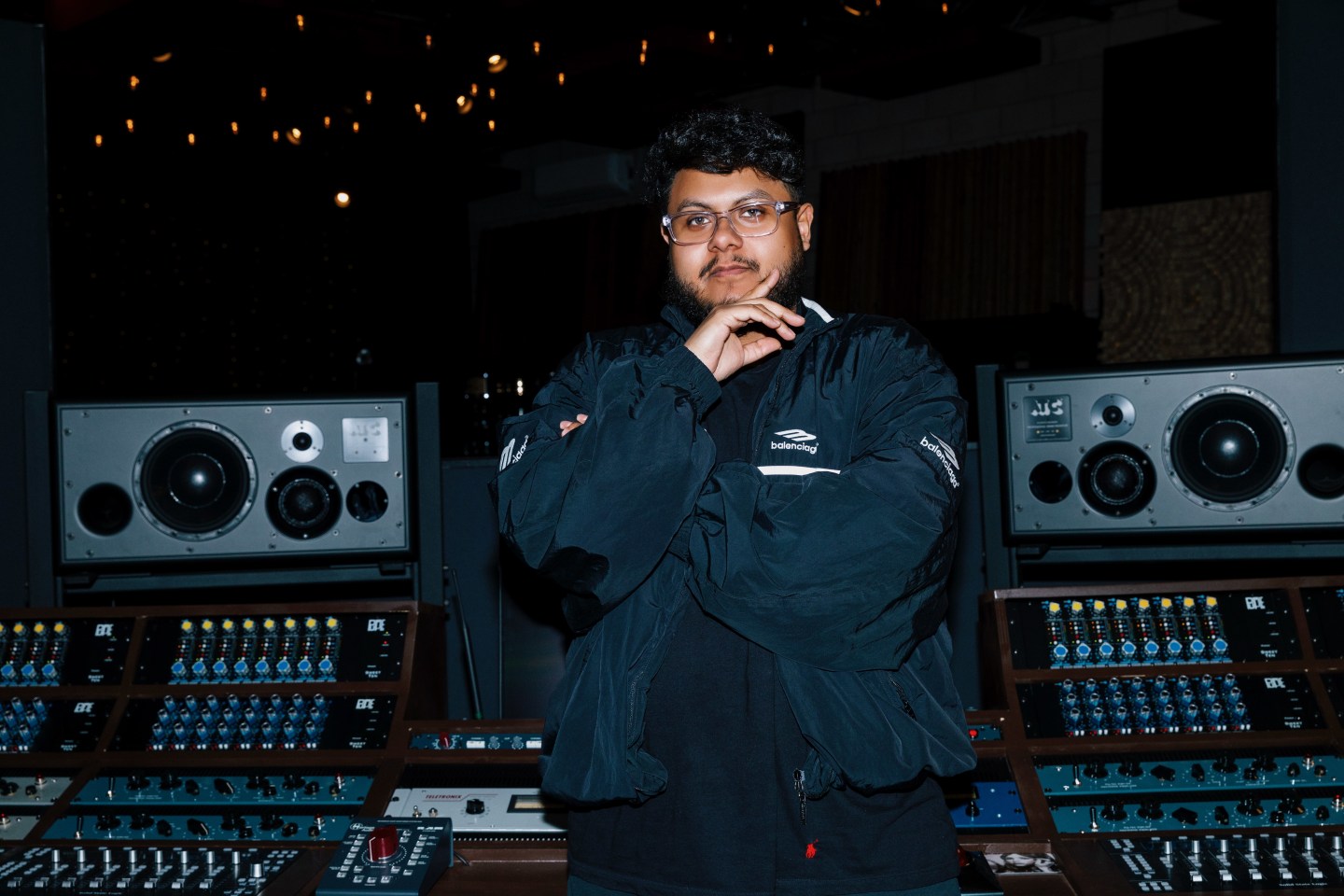
Synthetic has worked with Yeat since 2021’s 4L.
Justin Ayers
Let’s do some quick math. 4,800 beats in eight months is 600 beats a month. Months average 30 days, so 20 beats a day. Hologram has 20 members spread all across the world, so that’s one beat per day per person… for 240 straight days.
Sometimes, Synthetic says, Yeat will send him a reference, maybe a song that already exists or a TikTok sound. Synthetic will take that initial idea and put together a playlist “from different genres, not just rap” to further flesh out the vision for Hologram’s producers. In lieu of specific requests, the collective iterates on various prompts from Synthetic himself: “a beat that sounds like Crystal Castles with crazy drums” or “a Travis Scott-inspired beat with LYFESTYLE elements.”
“He’s a beat fucking factory,” Yeat says approvingly. “This guy could pump out, any given day, 400 beats, [and] I would listen to every single one of them.” That trust reflects the pair’s easy rapport and explains how such a disjointed creative process can yield such coherent results. Of course, plenty of that continuity is also thanks to Yeat himself, who not only records, engineers, and mixes his own vocals, but frequently also adds that final Wow! factor the instrumentals are missing.
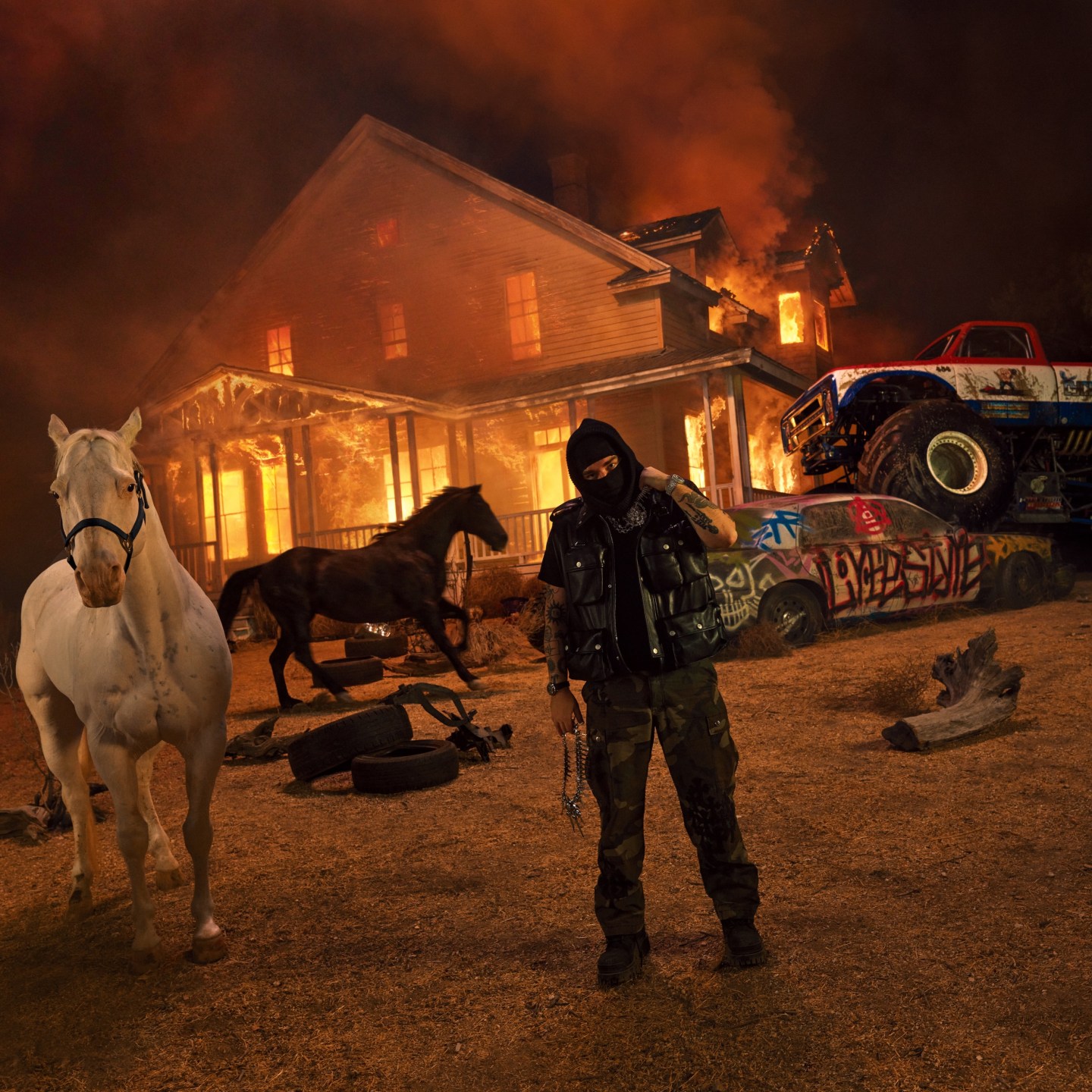
The cover of Yeat’s LYFESTYLE.
When a song is half-finished, Yeat will get started on harmonies and backing melodies. “If I really like the adlib I was singing — I don’t even know how to make beats — I’ll pull up a GarageBand synth and then turn that into what I was singing,” Yeat says.
These can be major contributions, like on “The Costes,” where Yeat’s melodies even impressed Synthetic, or “Lyfe Party,” where he added another line of sub bass to make the song feel “more powerful.” But they can be subtle too, like background noise. “On some songs, if I told you I produced this part, you’d be like ‘What do you mean?’” Yeat says. “But I like these little noises. It’s like ear candy […] You don’t even notice it, but it actually makes it feel different.”
“Imagine a beat is at 95%,” Bia adds. “His little contribution will take it to 100 [and] put it way more in his pocket.” One example can be found on the intro of “Be Quiet,” which is peppered with FAWKKKKs from an unexpected underground rapper. “It’s like a production texture,” Bia muses. “Without the ‘fawk’ it sounds empty. It’s almost like [he’s] an instrument, it really filled out the beat.” “At the time, I had someone else in mind for the verse,” Yeat explains. “[But] I just fucked with his energy, coming up straight based off himself.”
“He’s a beat fucking factory. This guy could pump out, any given day, 400 beats, [and] I would listen to every single one of them.”
This is a rare acknowledgement of contemporary music from an artist who frequently obscures his taste. But today, Yeat’s happy to clue me in on what he’s been spinning recently: “I’ll go from Bossman Dlow to an Italian movie soundtrack. And then I’ll go from that to fucking Deftones to The Smiths, and then I’ll run it back and go Crystal Castles.”
Sometimes, you can tease out these threads in specific songs, but dissecting Yeat albums is missing the point. In the aura economy, it’s the gestalt that matters — the way these various influences filter and bleed into each other. Though his music lives at the other end of the decibel scale, it can feel almost ambient in nature, less about “getting a bar off” than “soundtracking your life.” Certainly there’s a cinematic scope to his music akin to the IMAX spectacle of Travis Scott, Kanye West, Metro Boomin, and more; Synthetic compares Hologram’s production work for Yeat to assembling a symphony, the way layered instruments and chord progressions stack into a dense, delectable whole. Yeat’s proven himself as a rapper, but LYFESTYLE makes the case he’s also a savvy composer.
When I ask Synthetic to compare the first version of LYFESTYLE to its final form, he tells me the sound “matured [and] got a lot more serious;” the first iteration was more disorganized, less cohesive. “It’s bringing a lot of sounds from his old stuff,” Synthetic tells me. “I think that’s why a lot of people like this project a lot. There’s a lot of hype and patience because it feels nostalgic almost, but it’s fresh. It’s like we took some of the best elements from his past trap projects and we just made them even better and newer for a LYFESTYLE V2.”
“As we call you, we’re literally amidst a European tour, seeing some of the most beautiful places, basking in this incredible lifestyle,” Bia says of Yeat’s current moment. “And that’s why the music you hear on this next project is fun, it’s braggadocious, it’s the next level up of all the rap shit everyone knows and loves.”
As for Yeat? His next album, A.D.L., is already in the works, according to Synthetic. “I don’t know when it’s going to come out, but it’s kind of like 2093, but a lot more refined,” the producer tells me. “We’ve been spending a lot of time creating that sound in tandem with the LYFESTYLE sound for a couple months, because he’s been working on these two projects simultaneously, but that’s gonna be our focus for the next three or four months to a year […] After tour, he really wants to lock in in person and just take our time.”
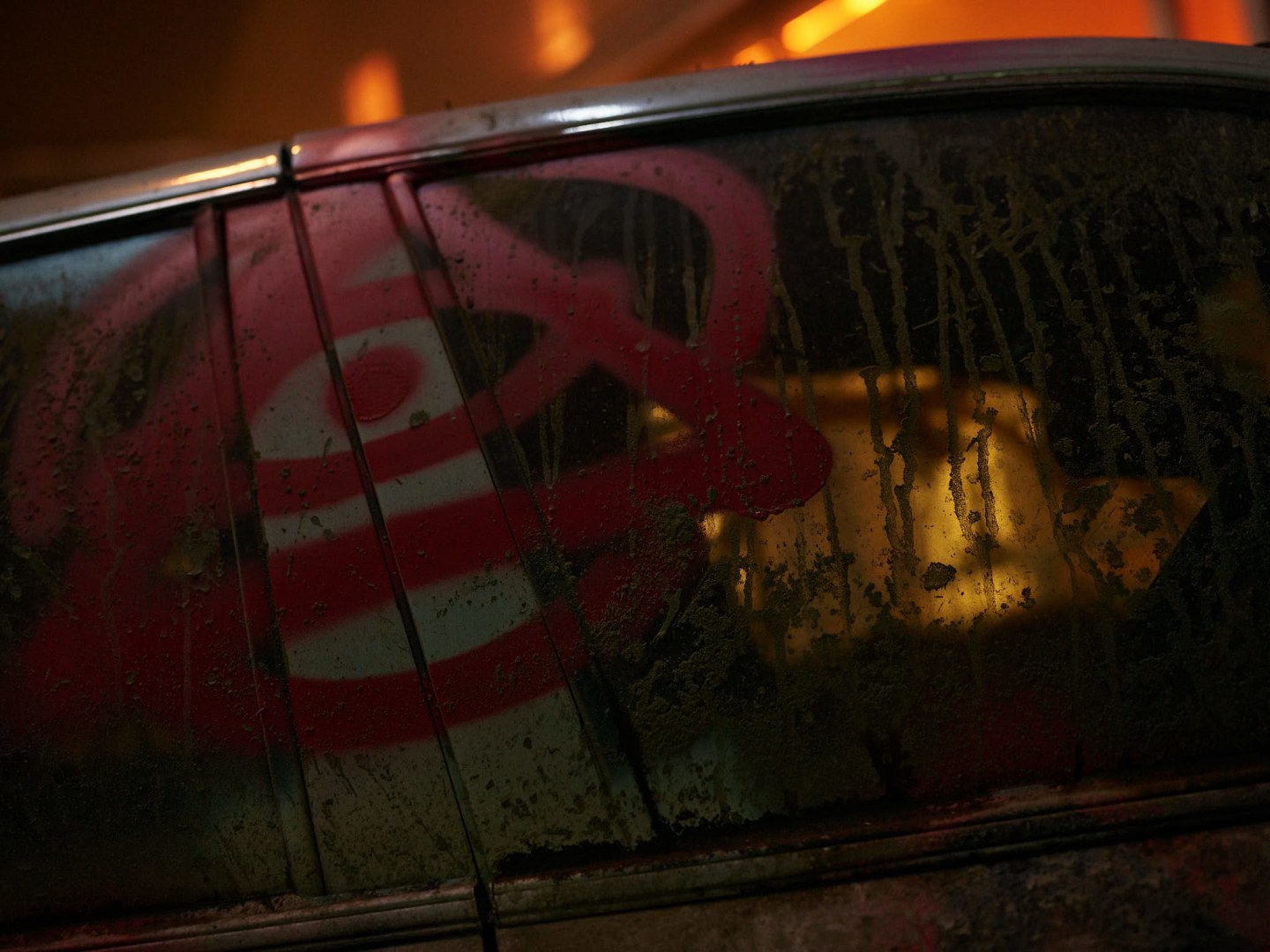
Alex Edep
Yeat’s LYFESTYLE:
GEEK TIMË
STFU
THEY TELL MË
HEARD OF MË
SPEEDBALL
U DON’T KNOW LYFE
ORCHESTRATË
BË QUIET
THE COSTËS
GO2WORK
GONE 4 A MIN
FOREVER AGAIN
ON 1
FLYTROOP
ELIMINATË
LYING 5 FUN
NEW HIGH
SO WHAT
LYFESTYLE
GOD TALKIN SHHH
LYFE PARTY
FATË (BONUS)
FEATURES: LIL DURK, DON TOLIVER, KODAK BLACK, SUMMRS

